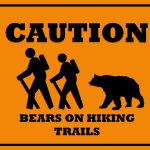Familiar with “Your Money or Your Life”? YMYL is Google’s nickname for health and wellness websites. How about EAT? “Expertise, Authority, & Trust.” That’s what Google expects from your content, and it’s how you earn the highest search positions.
What does YMYL mean?
Google sets the bar higher for content on website pages that can “potentially impact the future happiness, health or wealth of users.”
As we know all too well, there’s a lot of misinformation out there. Sometimes it’s incomplete, sometimes its flat-out wrong, and sometimes it’s actually dangerous (cinnamon and okra water for Type 1 diabetes, for example).
What kinds of businesses are included in YMYL?
Any business or organization whose website provides advice and information about general health and wellness, nutrition, drugs and treatments, diseases and conditions, mental health concerns and similar topics.
What exactly does “EAT” mean?
Google expects you to provide “expert, authoritative and trusted” content on health and wellness matters.
If you’re doing a great job, your site will rank higher in search engine results.
If not, you’ll rank lower.
EAT requirements include:
- An appropriate level of content given the scope of the topic — for example, a broad discussion of all types of breast cancer in women and men of all ages and ethnicities probably calls for more content than a discussion limited to BRCA-specific cancer in women of Ashkenazi descent between the ages of 35 and 40.
- Expert and authoritative content, which can range from a specialist physician to a knowledgeable layperson depending upon the topic
- A positive or trusted reputation, which includes a long list of elements from HTTPS protocols to author visibility, backlinks, third-party reviews and more
- Sufficient ancillary information like “About” or “Customer Service” pages
- Content is edited and refreshed frequently.
Does this affect our SEO ranking and site visits?
Emphatically, YES.
The July/August 2018 Google “Medic” SEO update illustrates this phenomenon.
Google updates its search algorithms throughout the year. These algorithms determine which sites achieve the highest ranking in response to various search queries.
This particular update seemed to penalize sites whose content blurred the lines between an informative search intent and a purchase-oriented intent. For example, DrAxe.com’s traffic dropped significantly. While this site initially looks a lot like a news site, if you spend much time on it you’ll quickly notice relentless promotional pressure.
Based on widespread reports, health and wellness sites were hit the hardest by “Medic”, which upped the ante on EAT. As many as 40 – 50% of health and wellness sites have reported seeing a significant drop in organic traffic and organic rankings. We saw a slight decline at a couple of our SEO clients, although for our customers it was not significant.
However, we talked to someone recently about a site whose rankings dropped like a rock last month despite expert SEO — and the most obvious and likely explanation is that the site provides health advice and tips submitted by anyone who wants to offer their opinion, on any health and wellness topic they wish, from minor to extremely serious and definitely life-threatening.
What should we do?
Don’t panic. Check your search rankings and Google Analytics site traffic stats. If this month’s numbers are:
- The same or better than the same month last year
- Flat or better since this May, with no significant decline
Then you’re probably OK for now.
On the other hand, if you do see a serious dropoff in rankings or traffic since June, you may have a case of “Medic”. The only cure will be a serious focus on content improvement as well as other SEO factors that affect site authority and reputation.
(If you can’t figure out where your site stands in search rankings, ping us and we can help you check.)
The bottom line
Sites that sell toasters, haircuts, pizza and dry cleaning can get away with more than you can. Google holds your site’s health and wellness content to a much higher standard.
If you’re falling short and your site visibility is paying the price, make strengthening your expertise, authority and trustworthiness your top SEO priority.



